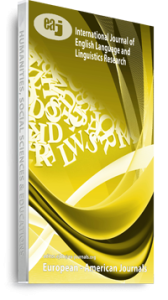Cameroon Francophone English (CamFE) is a fast-growing sub-variety of English in Cameroon. The field of pragmatics and especially the speech acts of requests remain unexplored in this sub-variety of English. This paper aims to investigate the types of requests in CamFE, their structure, as well as the lexical and syntactic features. Data were collected through Discourse Completion Test (DCT) administered from some 40 students in the Department of English Language and Literature of the University of Maroua. The DCT was made up of six described situations, and 240 request utterances were elicited. The data were analysed through the coding scheme of the Cross-Cultural Speech Act Realisation Patterns propounded by Blum-Kulka and Olshtain (1984). The results of the study show that CamFE speakers have six types of request content structures established as S1, S2, S3, S4, S5 and S6. The most preferred request strategy is the reference to preparatory conditions technique (81.67%) followed by the mood derivable technique (10%). In addition to this, the analysis further reveals that CamFE requests display some specific lexical and syntactic features.
Keywords: Cameroon Francophone English, Pragmatics, Requests, Speech Acts., varieties of English

